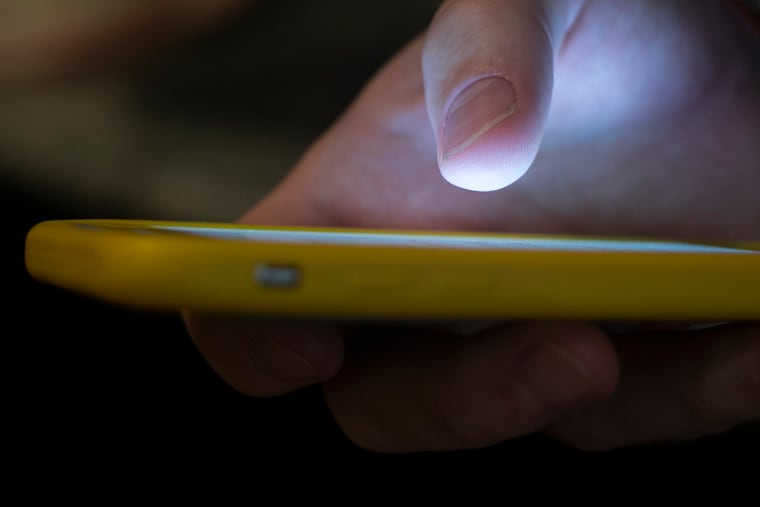Starting next month, the Abington School District is banning cell phones in classrooms
The announcement comes amid a growing movement cracking down on students’ use of cell phones, with New York City and Los Angeles announcing plans to ban phones in the coming school year.

Middle and high school students in the Abington School District will be required to forfeit their cell phones during classes when school starts next month, the district’s superintendent announced.
At a school board meeting Tuesday night, Superintendent Jeffrey Fecher said the district would be purchasing holders with pockets that can hang on the back of classroom doors for students to deposit their cell phones.
The new limits on cell phone use “may benefit students socially and emotionally,” and hopefully will also minimize classroom distractions, Fecher said.
The announcement comes amid a growing movement cracking down on students’ use of cell phones, with districts like New York City and Los Angeles announcing plans to ban phones in the coming school year.
As part of the state budget deal, Pennsylvania last month allowed school districts to tap into $100 million in safety and mental health grants to buy lockable smartphone bags to store student cell phones throughout the school day. The program is optional for districts.
Abington isn’t buying those pouches, but something more “equivalent to a shoe holder,” Fecher said, allowing students to retrieve their phones as they leave the classroom.
» READ MORE: Teachers at this tech-forward school banned cell phones. They say they’re ‘never going back.’
“We think it’s important to take a small step, and wait to see what happens as far as legislation as concerned,” Fecher said, referring to the prospect of other changes.
Exceptions will be made for students who need their phones for health reasons, and for accessibility purposes, Fecher said.
He noted that for some students, “this may feel like a big transition,” and that it could take several weeks for the new rules to become routine.
Fecher said Abington administrators were moved to act after reading The Anxious Generation, a book by social psychologist Jonathan Haidt that connects phones and social media with a rise in anxiety and depression among young people. The book has gained wide attention since it was published earlier this year, with schools and parents organizing book clubs around it.
Shameeka Browne, president of the Abington school board, said she had also started reading the book. “As a parent of Gen Zers,” she told Fecher, she was thankful for the new policy, which will “help our students to be freed up to just learn.”